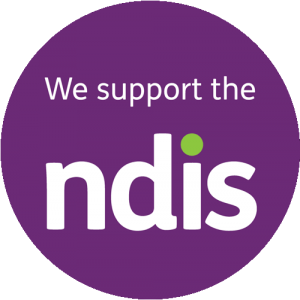We celebrated deafblind awareness in the month of June so now is a good time to look at how deafblindness affects people and how Connect4U Australia can support participants who have been diagnosed with it.
Assistant Support Coordinator, Rechelle Stafford, discusses the importance of Deafblind Awareness Week.
“The best and most beautiful things in the world cannot be seen or even touched - they must be felt with the heart”
Helen Keller
Deafblind Awareness Week
Last week was Deafblind Awareness Week – 27th June – 3rd July 2022 – a time devoted to increasing awareness and knowledge of the deafblind community. Established in 1984, Deafblind Awareness Week coincides with the birthday of Helen Keller, who was born on 27 June, over a hundred years earlier.
Many of us know the story of Helen Keller, how she lost her vision and hearing as a result of a childhood illness, and how her teacher and mentor, Anne Sullivan, taught Helen to communicate through finger spelling. But did you know that Helen was the first deafblind person to earn a college degree and went on to become a renowned author, lecturer and advocate for social and political issues? Inspirational stuff!
Assistant Support Coordinator, Rechelle Stafford, took a look at how deafblindness affects people and how Connect4U Australia can support participants who have been diagnosed with it.
What does deafblind mean?
Deafblind is an umbrella term for a disability impacting both children and adults who are not able to hear or see. It is a multi-sensory impairment. Around 95 per cent of the things we learn are through our eyes and ears, so losing these two very important sensory organs can cause development and learning difficulties. Children born with this impairment (Congenital Deafblindness) may have never seen or heard the world, so they find it difficult to understand objects in their environment and spatial relationships. Individuals who lose their ability to see and hear at a later stage of life (Acquired Deafblindness) can often learn to use adaptations to compensate for sensory loss.
Like most other impairments, deafblindness sits on a spectrum where people may have varying degrees of sight or hearing loss. People who are deafblind are likely to have significant communication difficulties, and as a result can often experience barriers to being included in community activities and networks. This can lead to social isolation, and if not addressed, mental health issues.
How can NDIS Support Coordination help?
Here at Connect4U Australia, we provide support coordination for many participants with different impairments, including deafblindness. We take a client-centred approach to our practice, linking NDIS participants to supports and services including at-home help, community support, therapies and identifying opportunities for people to access assistive technology. Your Connect4U Support Coordinator can also refer you to mainstream and community services who can provide further assistance.
Do you know someone who is deafblind and in need of assistance to make the most of their NDIS plan? The resources at Deafblind Australia and Deafblind Information Australia are a great place to start. And for participants needing support coordination, give Connect4U Australia a call on 1800 595 423.


